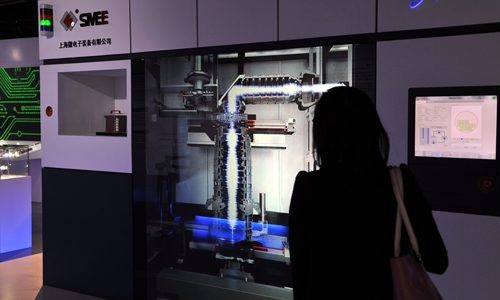In the realm of lithography technology, China has been making significant strides towards self-sufficiency in chip production. With the development of ultraviolet (UV) based lithographic technology at Shanghai Micro Electronic Equipment (SMEE), China aimed to produce its own 28nm chips by the end of 2021 and 20nm chips by early 2023, without relying on US fabrication technology and equipment.

China's progress was hindered when the US, Japan, and the Netherlands initiated restrictions on the sales of advanced wafer fab equipment to Chinese companies. These restrictions, targeting chipmaking gear, which is a weak link in China's semiconductor supply chain, can be seen as a strategic alignment with the US-led "Chip-4 Alliance," aiming to curb China's semiconductor industry.
Nevertheless, these restrictions have had an unintended consequence. SMEE, the Chinese leader in lithography gear that was blacklisted by the US, has announced its plans to deliver its first lithography machine based on 28nm technology later this year. The company's first domestically produced SSA/800-10W lithography machine is expected to enter the market by the end of 2023.
It remains unclear whether SMEE can deliver these machines in bulk, as they still rely to some extent on foreign equipment. Even with Japan's recent export control measures for chipmaking equipment, including lithography machines, it is evident that China is likely one of the intended targets.
The Dutch government has also announced restrictions on the export of specific advanced semiconductor equipment, affecting SMEE's potential competition with the world-leading lithography machine maker ASML.
Chip production is not a task that any one country can accomplish independently. Global cooperation and collaboration are necessary. As Zhang Hong, a semiconductor industry analyst, pointed out, China should seek cooperation with proponents of globalization. The most advanced lithography machines, such as EUV machines, have hundreds of thousands of components, making reliance on the global supply chain essential.
US Commerce Secretary Gina Raimondo has expressed concerns about China's significant investments in legacy chip production capacity. She emphasizes the importance of collaborating with allies to address this challenge and prevent future issues resulting from an excess capacity of mature and legacy chips.
While restrictions on chipmaking equipment have temporarily hindered China's progress, there are indications that the country is accelerating its efforts towards achieving chip self-sufficiency. Collaboration and cooperation with global partners will be crucial for China's chip industry to overcome challenges and continue its growth trajectory.







